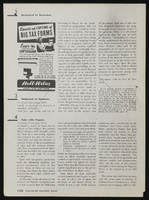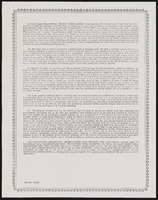Search the Special Collections and Archives Portal
Search Results
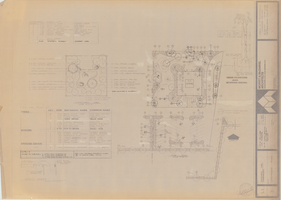
Southwest Gas Corporation office building: architectural drawing
Date
Archival Collection
Image
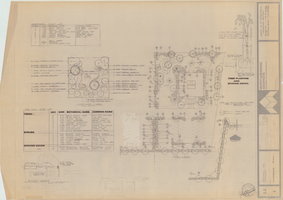
Southwest Gas Corporation office building: architectural drawing
Date
Archival Collection
Image
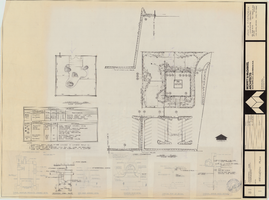
Southwest Gas Corporation office building: architectural drawing
Date
Archival Collection
Image
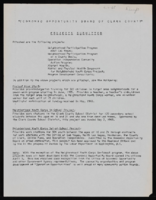
Projects submitted to the Economic Opportunity Board of Clark County: documents
Date
Archival Collection
Description
From the Clark County Economic Opportunity Board Records -- Series II: Projects. This folder contains documents about the projects submitted to the Economic Opportunity Board of Clark County agendas, documents about Work Experience Programs in Nevada, documents about the Economic Opportunity Act of 1964, and neighborhood services center.
Text
Don Ashbaugh Papers on Nevada Ghost Towns
Identifier
Abstract
The Don Ashbaugh Papers (1950-1960) document Las Vegas history, Nevada history, and ghost towns. The collection is comprised of the working manuscript of Don Ashbaugh's book, Nevada's Turbulent Yesterday: A Study in Ghost Towns. The collection also contains typescript drafts, newspaper clippings, and a geographical index of Nevada ghost towns.
Archival Collection
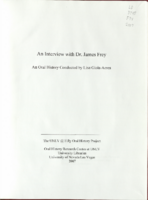
Transcript of interview with Dr. James Frey by Lisa Gioia-Acres, February 14, 2007
Date
Archival Collection
Description
Text

Anita Tijerina Revilla oral history interview: transcript
Date
Archival Collection
Description
Oral history interview with Anita Tijerina Revilla conducted by Marcela Rodriguez-Campo on October 09, 2018 for the Latinx Voices of Southern Nevada Oral History Project. In this interview, Revilla discusses her early life in San Antonio, Texas. She talks about her decision to make education a priority, figuring out the college application process on her own, and her initial interest in social justice. Revilla talks about how her critical consciousness was developed, and her pedagogical approach to teaching. Revilla describes her role in the 2006 May Day march, advocating advocating for the queer community, and disrupting oppressive systems to increase educational access for students. Lastly, Revilla discusses ethnic studies and the history of inequality in the United States.
Text


